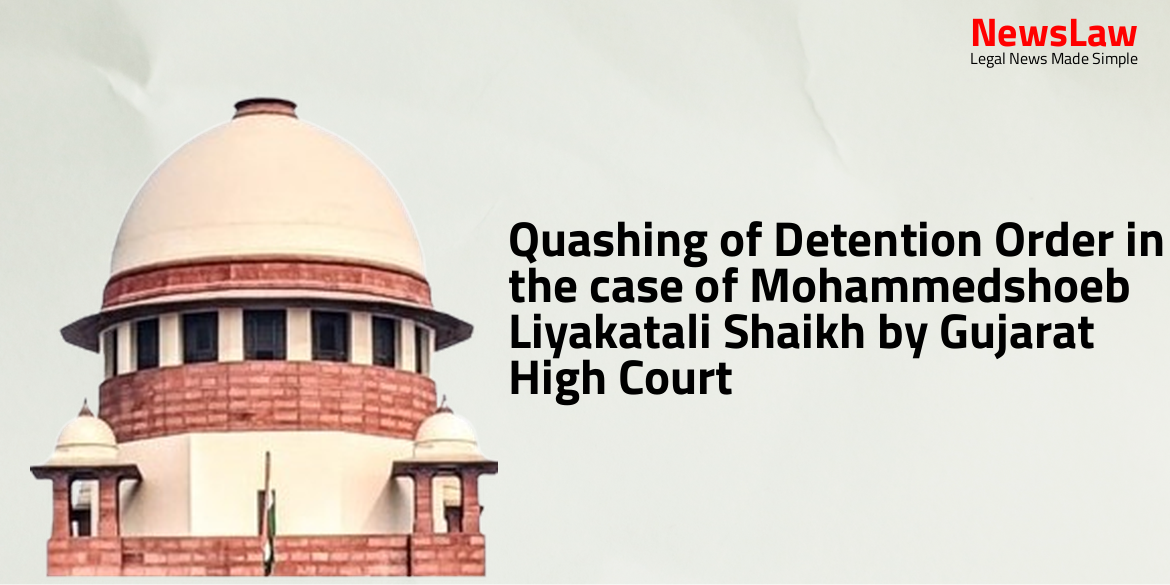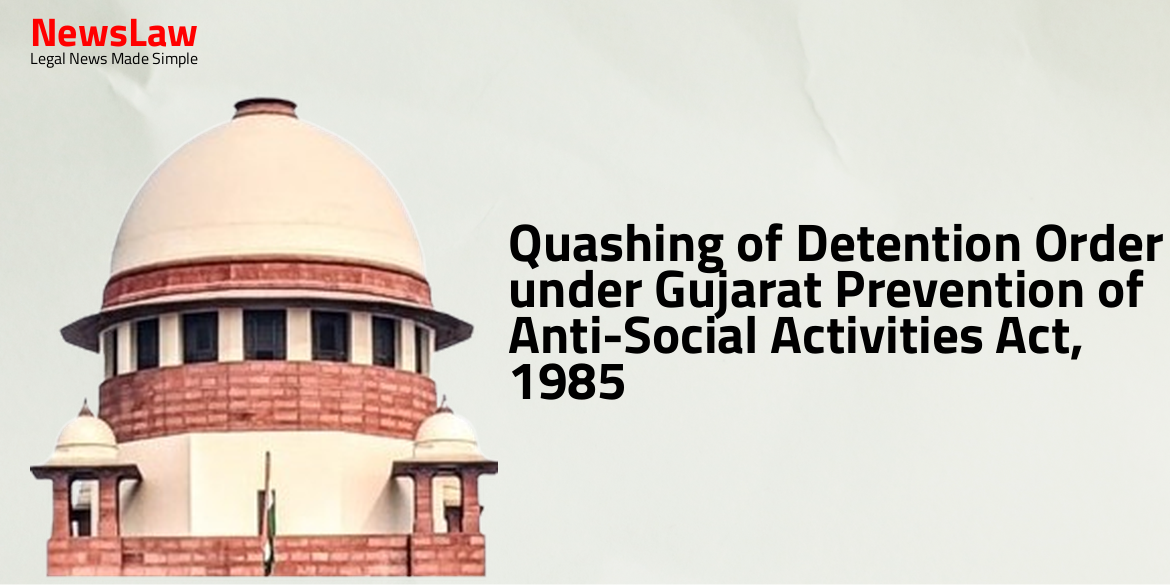In a groundbreaking decision, the Gujarat High Court has quashed the FIR in the case involving Accused Nos. 5 and 6. This ruling marks a pivotal moment in the pursuit of justice and fairness in legal proceedings. The Court, after considering various legal principles and precedents, has upheld the importance of amicable settlements and preventing unnecessary harassment. The resolution in this case, as affirmed by the complainant in an affidavit, signifies a positive step towards maintaining public tranquility. #GujaratHighCourt #LegalJudgment #FIRQuashing
Facts
- Original complainant has filed an Affidavit dated 02.05.2024
- The dispute has been settled amicably by the parties
- The settlement is pursuant to mutual agreement
Arguments
- The original complainant has stated in the Affidavit that the dispute with the petitioner has been resolved amicably.
- The original complainant has mentioned that he has no objection to quashing and setting aside the present proceedings.
- There is no surviving grievance between the original complainant and the petitioner as per the Affidavit.
- Learned advocate Mr. Chintan Adeshara has appeared on behalf of the original complainant and seeks permission to file his Vakalatnama.
Analysis
- The powers under Section 482 of the Code are wide and require caution in their exercise.
- The impugned FIR was filed at the instance of the complainant.
- The charge-sheet revealed allegations against accused Nos.1, 3, 4, 5, and 6 regarding lending money at a higher interest rate, forcefully taking possession of the complainant’s cars, receiving blank cheques and signatures, and extortion.
- The investigation led to the filing of the charge-sheet and a pending Criminal Case.
- Similar roles of present petitioners to co-accused whose proceedings were quashed by a coordinate Bench.
- Impugned proceedings against accused Nos. 5 and 6 were previously quashed by the coordinate Bench.
- To secure justice, it is deemed appropriate to quash the impugned FIR and all related proceedings under Section 482 of the Cr.P.C.
- The Court must base decisions on sound principles and not stifle legitimate prosecutions.
- The High Court should refrain from giving a prima facie decision when facts are incomplete and issues are of significant magnitude without sufficient evidence.
- High Court has the jurisdiction to quash proceedings at any stage as decided by the Supreme Court in the case of Central Bureau of Investigation vs Ravi Shankar Srivastava.
- Court considered principles laid down by the Apex Court in various cases including Gian Singh Vs. State of Punjab, Madan Mohan Abbot Vs. State of Punjab, Nikhil Merchant Vs. CBI, Manoj Sharma Vs. State, and Narinder Singh Vs. State of Punjab.
- The dispute in the current case has been amicably settled, with no chance of public tranquility breach, as affirmed by the complainant in an affidavit.
- Continuation of criminal proceedings would lead to unnecessary harassment of the petitioners as per the Court’s opinion.
- Abusive language cases under Section 504 of IPC must have elements likely to incite a breach of peace or offense intending to provoke the person insulted.
- Court referred to the decision in State of Haryana vs Bhajan Lal regarding absurd and improbable allegations in FIRs.
- In cases of offense under Section 506(2) IPC, intentional insult through act or conduct must be proven as per the Supreme Court’s ruling in Mohammad Wajid and Anr. vs. State of U.P. and Ors.
- Court emphasized that the test for intentional insult in Section 504 IPC is based on the general nature of abusive language and its ordinary effect, not the peculiar traits of the complainant.
- In order to determine intentional insult, the specific abusive words used must be known.
- Knowing the words used is crucial for establishing the presence of intentional insult.
- The use of abusive words is a key factor in determining intentional insult.
- The absence of knowledge regarding the words used makes it difficult to decide on intentional insult.
- Before an offence of criminal intimidation can be proven, it must be shown that the accused intended to cause alarm to the complainant.
- This requirement is specified in Section 506 of the Indian Penal Code, 1860.
- The element of intention to cause alarm is essential in establishing criminal intimidation.
Decision
- Rule made absolute to the extent mentioned
- Direct service permitted
- All penal statutes to be construed strictly
- Court must ensure the charged offense is within the plain meaning of the words used
- Words must not be strained in interpretation
Case Title: KALPESHBHAI BHIKHABHAI DESAI (RABARI) Vs. STATE OF GUJARAT
Case Number: R/SCR.A/5637/2024



